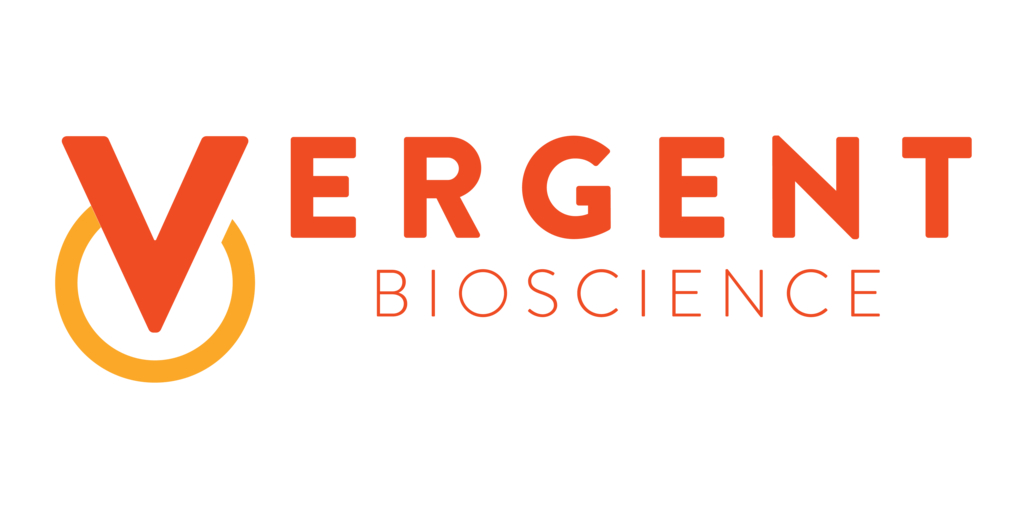MINNEAPOLIS--(BUSINESS WIRE)--Vergent Bioscience, a clinical-stage biotechnology company developing tumor-targeted imaging agents, announced completion of patient enrollment in the company’s Phase 2, multi-center VISUALIZE trial, evaluating the efficacy and safety of abenacianine for injection (VGT-309) in patients with cancer in the lung. Abenacianine for injection is a novel, investigational tumor-targeted fluorescent imaging agent designed to improve the visibility of difficult-to-find and previously undetected tumors during minimally invasive and robotic-assisted surgical procedures.


“The VISUALIZE trial will provide additional, valuable insights illuminating the potential of our novel imaging agent to address existing deficits in tumor visualization during lung surgery,” said John Santini, Ph.D., president and chief executive officer at Vergent Bioscience. “Completing enrollment in the trial is an exciting milestone that reflects our team’s dedication, as well as the commitment of the VISUALIZE clinical investigators and study participants. We look forward to sharing the results of this study.”
Data from previous clinical studies of abenacianine for injection suggest the agent allowed surgeons to see tumor tissue during minimally invasive surgery (MIS), including robotic-assisted surgical procedures, providing “molecular sight” and potentially increasing their confidence in MIS.
For the Phase 2 VISUALIZE trial, investigators at six sites in the United States and Australia enrolled 89 patients with cancer in the lung, all of whom received 0.32mg/kg abenacianine for injection as a short infusion 12 to 36 hours prior to surgery. Following data readout from the VISUALIZE trial, Vergent intends to advance the agent into a Phase 3 study. Assuming positive Phase 3 results, the company will file a new drug application (NDA) for abenacianine for injection for cancer in the lung.
About Lung Cancer Surgery
Approximately 25% of all U.S. lung cancer patients undergo lung cancer surgery, which can be a curative treatment if lung cancer is diagnosed early, and all tumor tissue is removed.1 MIS and robotic-assisted surgery methods are increasingly utilized in lung cancer resection because these approaches are associated with shorter hospital stays, smaller incisions, less blood less, and decreased post-operative complications. While these are important advantages, MIS and robotic-assisted surgery often compromise surgeons’ sight and ability to feel tissue during procedures, making it difficult for them to distinguish tumors from normal tissue and ensure all tumor tissue is removed.
About the VISUALIZE Clinical Trial
The Phase 2, multi-center, open-label VISUALIZE study (NCT06145048) was designed to evaluate the efficacy and safety of abenacianine for injection in patients undergoing surgery for proven or suspected cancer in the lung. Each of the 89 patients in the study received 0.32mg/kg abenacianine for injection 12 to 36 hours prior to surgery. Following an attempt to identify each tumor using standard surgical techniques, investigators used a commercially available near-infrared (NIR) endoscope to assess the presence of tumor tissue, which was then confirmed by pathology. Primary efficacy endpoints included visualization of tumors intraoperatively, surgical margin assessment, and identification of additional cancers or positive lymph nodes that may not have been seen preoperatively.
About Abenacianine for Injection (VGT-309)
Abenacianine for injection is a tumor-targeted fluorescent imaging agent designed to enable a complete solution for optimal tumor visualization during open, minimally invasive and robotic-assisted surgical procedures. Abenacianine for injection is delivered to patients via a short intravenous infusion several hours before surgery. Invented in Professor Matt Bogyo’s Lab at Stanford University School of Medicine, the molecule binds tightly (i.e., covalently) to cathepsins, a family of proteases that are overexpressed across a broad range of solid tumors. This approach, if successful, would provide distinct clinical advantages and position abenacianine for injection as an ideal tumor imaging agent. Abenacianine for injection’s imaging component is the near infrared (NIR) dye indocyanine green (ICG), which is compatible with all commercially available NIR intraoperative imaging systems that support MIS technologies and is a preferred dye to minimize confounding background autofluorescence.
About Vergent Bioscience, Inc.
Vergent Bioscience is a clinical-stage biotechnology company that is helping surgeons realize the full potential of minimally invasive and robotic-assisted surgery by improving the visibility of tumors. Vergent’s lead compound, abenacianine for injection, is a tumor-targeted fluorescent imaging agent designed to enable surgeons to see difficult-to-find or previously undetected tumors in real-time during surgery, so that they can ensure all tumor tissue is removed. The company is first evaluating abenacianine for injection for cancer in the lung, with the potential to expand its application to a wide range of solid tumors. Vergent Bioscience is a privately held company based in Minneapolis, MN.
- Lu T, et al. "Trends in the incidence, treatment, and survival of patients with lung cancer in the last four decades," Cancer Manag Res. 2019 Jan 21;11:943-953. https://pubmed.ncbi.nlm.nih.gov/30718965/
Contacts
Media
Laura Morgan
Sam Brown, Inc.
1-951-333-9110
lauramorgan@sambrown.com




